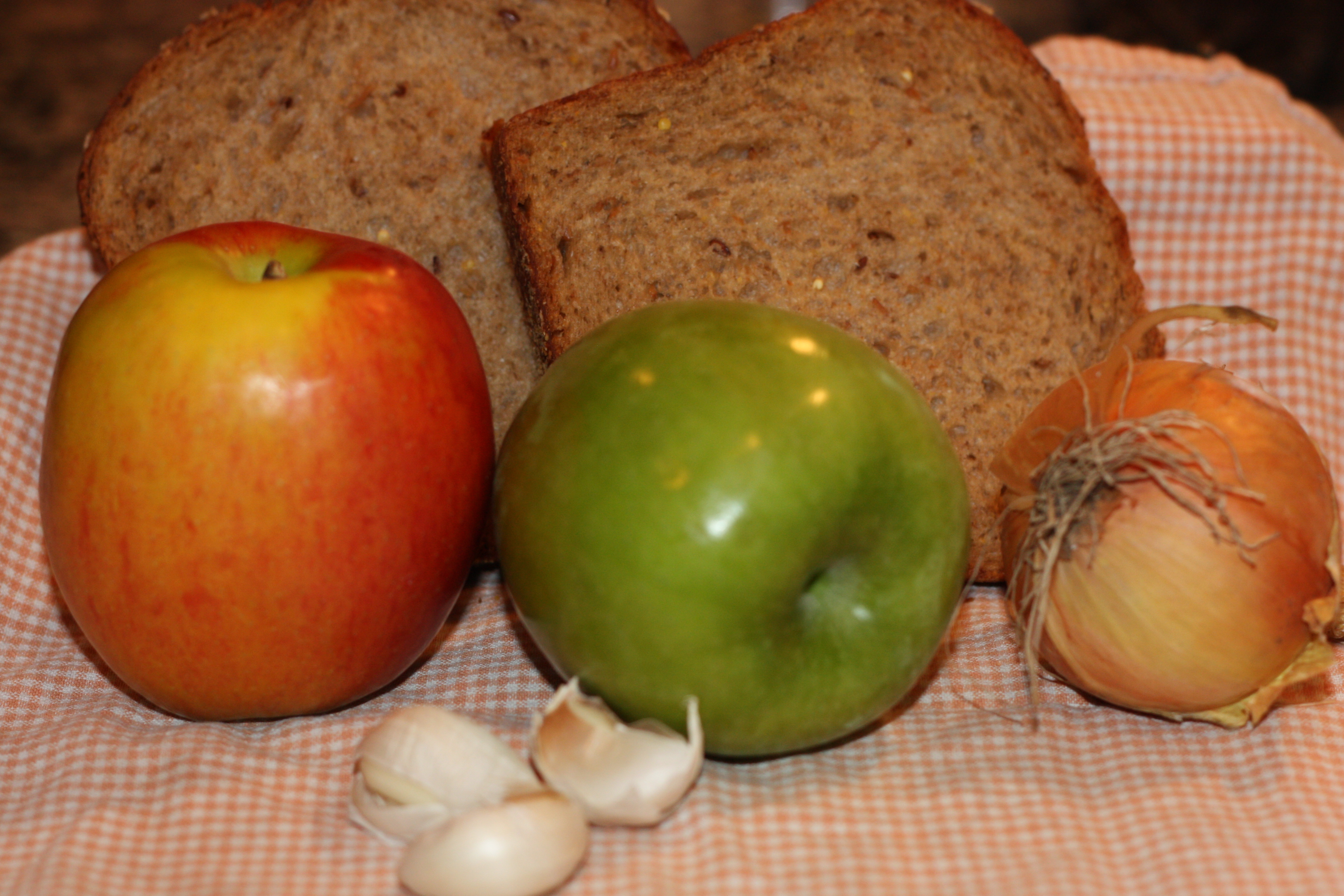 You may say, what the heck are FODMAPs? And I would tell you ALL about FODMAPs, in fact, I would tell you more than you may want to hear. You see, FODMAPs are a group of carbohydrates and fibers found in many common healthy foods such as watermelon, onions, garlic, wheat, apples and pears to name a few foods and FODMAPs are not tolerated by many people with a sensitive gastrointestinal tract. FODMAPs is an acronym for fermentable oligo-, di-, mono-saccharides and polyols. (Is that too much information?)
You may say, what the heck are FODMAPs? And I would tell you ALL about FODMAPs, in fact, I would tell you more than you may want to hear. You see, FODMAPs are a group of carbohydrates and fibers found in many common healthy foods such as watermelon, onions, garlic, wheat, apples and pears to name a few foods and FODMAPs are not tolerated by many people with a sensitive gastrointestinal tract. FODMAPs is an acronym for fermentable oligo-, di-, mono-saccharides and polyols. (Is that too much information?)
I am fascinated with FODMAPs. I have learned so much about these troublesome sugars and fibers but always want to learn more. Why you may ask? Seventeen years ago, while pregnant, I had a healthcare complication that required two-thirds of my small intestine to be removed to save my life and the life of my growing baby boy. As you can imagine, my life and my gastrointestinal tract has never been the same! The silver lining of this horrendous surgery was that I am a registered dietitian and I was fortunate to know what, when and how much to eat to make my body heal and feel its best.
After my surgery, my interest in digestive health grew and I stumbled upon some very compelling research out of Australia. A group of researchers from Monash University near Melbourne, Australia, had developed a novel diet which they coined the “FODMAPs” approach. They determined that certain sugars and fibers cause uncomfortable symptoms such as gas, bloating, diarrhea for many individuals who have a very common condition called irritable bowel syndrome. (IBS). Since I have learned about this diet approach to help manage IBS, I have in turn helped countless clients feel so much better! It’s been truly amazing.
Next month, in just about a week, on September 2, the Monash University researchers are presenting a conference for dietitians. I am beyond thrilled because I will be one of the dietitians in the audience! Yes, I am heading to Australia to learn the LATEST research! Because the diet is a bit complex and the research and food analysis is tedious and ongoing, I am sure the researchers will presents some new and exciting information. For more info on FODMAPs-check out my FODMAPs tab on this blog which contains grocery shopping lists, check lists, menu planning, digestive health articles and more! My book ,The Complete Idiot’s Guide to Eating Well with IBS provides an introduction to FODMAPs and many FODMAP-friendly recipes.
So Mates, I am off to Australia! Catch up soon.


EA-The Spicy RD
Hope you have an incredible time in Australia, and I can’t wait to hear about what you learn. I have worked with the FODMAPs diet {with success} on a couple of clients now, and the information on your website has been a great resource for me-thank you!!!
katescarlata
Thanks for the feedback and I will be sure to update the blog with all that I learn. Feel so lucky to be in Australia!
Sarah
Thanks for all the info! I’m obsessed with FODMAPs too, this approach is my IBS savior. I just wish there was a definitive list- I keep on reading contradictory info and all from reputable sources too. x
katescarlata
FODMAPs are simply not black and white for a number of reasons. Lists do vary as the “cut-off” levels have only recently been developed and not all practitioners were/are on the same page plus food concentrations of FODMAPs vary depending where the food was grown and in what conditions the food was grown. Food grown in drought conditions will vary in fructans compared to the same food grown in ideal conditions so as much as we would love a FIRM list–it is somewhat of a moving target. The key is to minimize not eliminate all FODMAPS and sometimes we lose sight at that very important concept!
Best!
Jennifer
I look forward to trying your recipes and utilize your lists and helps quite often since my specialist recommended FODMAPS 9 mos ago. FODMAPS has made a tremendous difference in my health, once I followed it faithfully and eliminated “hidden FODMAPS.” We have learned to be healthier and creative in the kitchen! So far we cannot reintroduce any foods successfully. It seems as if the medical community is still learning about this matter though. The challenge, is staying nutritionally balanced, but it can be done. Thanks again for the helpful site.
katescarlata
Hi Jennifer so glad you found my blog. From personal experience, I have found my clients to be most successful re-challenging foods if we test small amounts of the foods and go slowly and methodically. For instance, when challenging fructose, we may start with 1 tsp of honey…and test this amount for 3 times in one week…unless the person develops symptoms. Then we may add in 1/2 a mango with the honey the following week. Challenge foods should only contain the FODMAP you are testing.(So apples are NOT a good challenge food as they have excess fructose and sorbitol!) When re-challenging mannitol, simply try 1/2 cup of mushrooms. Best to you!